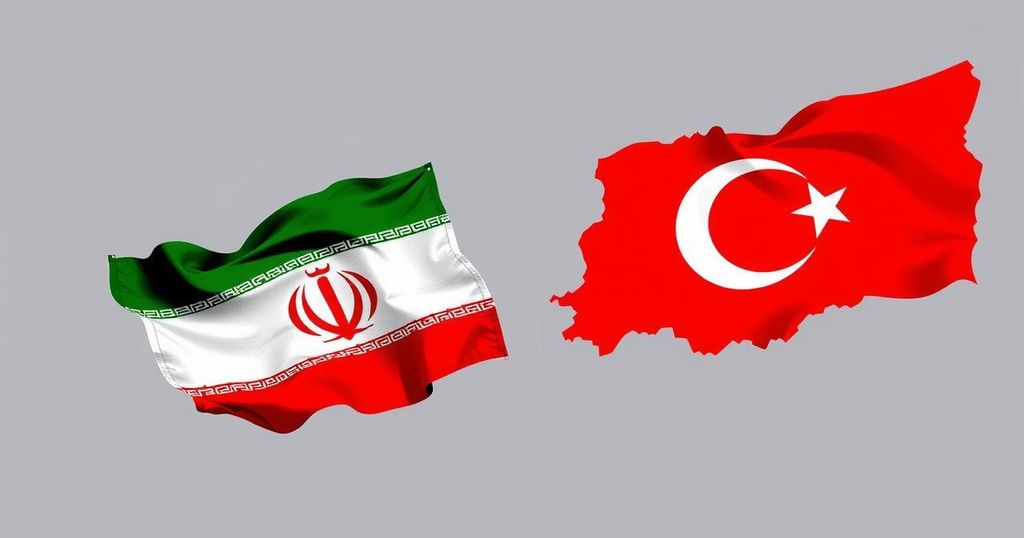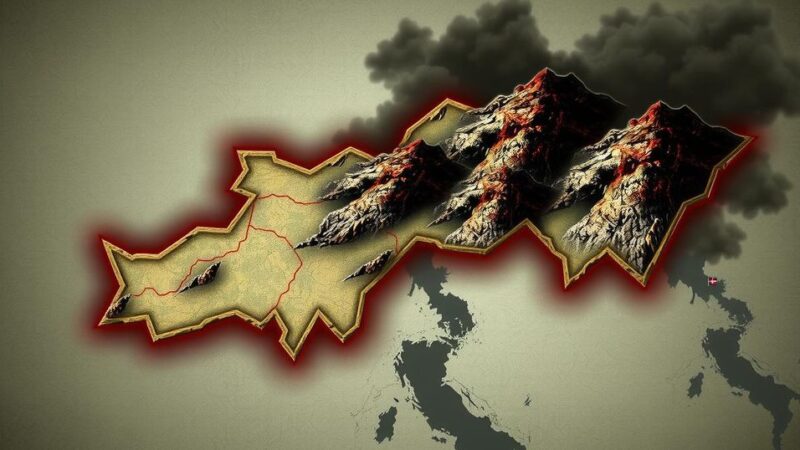The death of Hamas leader Yahya Sinwar has prompted Iranian Foreign Minister Abbas Araghchi to visit Turkey, marking a significant moment in Iran-Turkey relations. Both nations are looking to bolster support for Hamas and Hezbollah in opposition to Israel, coinciding with ongoing geopolitical discussions involving Azerbaijan and Armenia. This backdrop presents an evolving narrative of cooperation amid shared challenges in the region.
Following the death of Yahya Sinwar, the leader of Hamas, Iranian Foreign Minister Abbas Araghchi embarked on a diplomatic visit to Turkey amid a broader regional tour. This visit focused on bolstering Iran’s influence across the Middle East while aiming to consolidate a united front against Israel. Araghchi had already visited several key players in the region, including Lebanon, Syria, Saudi Arabia, Qatar, Iraq, Oman, Jordan, and Egypt, each stop designed to strengthen alliances against Israel’s perceived aggressions. The Iranian Foreign Minister’s remarks underscored a shared concern regarding escalating conflicts in Gaza and Lebanon, further emphasizing cooperation between Tehran and Ankara in support of Hamas and Hezbollah. Iran and Turkey, while possessing some ideological differences, have found common ground in opposing Israel, with both nations expressing solidarity with Hamas. Araghchi’s trip to Istanbul, as described by Iranian state media, served the dual purpose of addressing regional threats and reinforcing diplomatic ties, particularly in light of rising tensions in Gaza. Additionally, Iran and Turkey are also discerning their positions regarding the geopolitical dynamics involving Azerbaijan, Armenia, and Russia. These discussions highlight the intricate relationships in the region, as Turkey traditionally aligns itself with Azerbaijan, whereas Iran has fostered relations with Armenia. The influence of Russia, which maintains connections with all parties, complicates this balance. Notably, Turkey’s foreign policy has shifted towards a more confrontational stance against Israel, notably articulated through Foreign Minister Hakan Fidan’s comments and President Recep Tayyip Erdogan’s increasingly harsh rhetoric over the past year. The collaboration between Iran and Turkey appears set to expand, with both nations recognizing the importance of a coordinated effort to confront common adversaries whilst navigating their respective national interests.
The geopolitical landscape of the Middle East has been influenced significantly by the relationships between Iran, Turkey, and various non-state actors such as Hamas and Hezbollah. The death of Hamas leader Yahya Sinwar has shifted dynamics, prompting increased diplomatic engagement between Tehran and Ankara. Their historical tensions often stem from varying interests and alignments, particularly in the context of the Syrian civil war and Kurdish issues; however, recent events indicate a growing inclination towards collaboration to counter Israeli actions in Gaza and support Hamas. Additionally, the region’s complex interplay, particularly involving Azerbaijan and Armenia, accentuates the need for these nations to negotiate their respective foreign policies while addressing mutual concerns about regional stability.
The aftermath of Yahya Sinwar’s death has catalyzed strengthened relations between Iran and Turkey, with both nations poised to enhance their support for Hamas and Hezbollah. This strategic alignment indicates a shared commitment to countering Israeli influence and addressing escalating conflicts in the region. Moreover, the dialogues regarding Azerbaijan and Armenia further reflect the nuanced geopolitical calculations at play. As Turkey adopts a more aggressive stance against Israel, the coordinated efforts between Tehran and Ankara are likely to have significant implications for the regional balance of power.
Original Source: www.jpost.com






